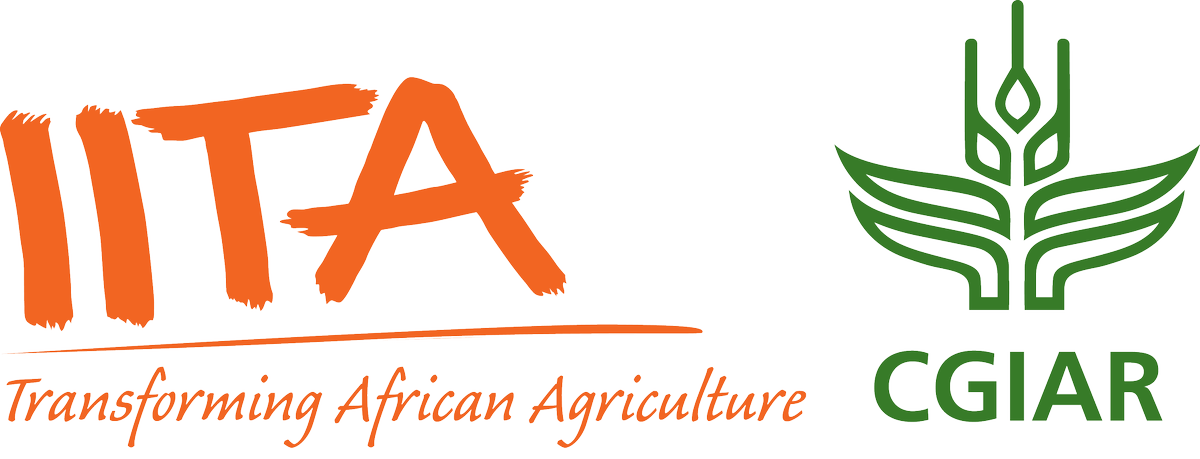Fall armyworm in Cameroon: distribution, damage, pesticide use, genetic differentiation and host plants.
Citation
Data and Resources
-
maize survey database.csvcsv
FAW distribution and diversity in Cameroon
-
Meta_maize_survey_database.csvcsv
Metadata for FAW distribution and diversity in Cameroon
Additional Info
| Field | Value |
|---|---|
| Creator | Fotso Kuate, Apollin |
| Creator Affiliation | International Institute of Tropical Agriculture (IITA) |
| Creator email | a.fotso@cgiar.org |
| Creator ID Type | ORCID |
| Creator ID | 0000-0002-5247-7519 |
| Subject Vocab (AGROVOC/GACS/CAB) | Pesticides,Maize,Spodoptera frugiperda,Pests,Stem borers,Seeds,Fertilizers,Vegetation |
| Subject(s) | Maize,Fall armyworm,Cameroon,Incidence |
| Publisher | International Institute of Tropical Agriculture (IITA) |
| Contributor Person 1 | Rachid Hanna |
| Contributor Person 1 Affiliation | International Institute of Tropical Agriculture (IITA) |
| Contributor Person 1 email | r.hanna@cgiar.org |
| Contributor Person 2 | Samuel Nanga |
| Contributor Person 2 Affiliation | International Institute of Tropical Agriculture (IITA) |
| Contributor Person 2 email | s.nanga@cgiar.org |
| Contributor Person 3 | Maurice Tindo |
| Contributor Person 3 Affiliation | |
| Contributor Person 3 email | |
| Contributor Person 4 | Armand Doumtsop |
| Contributor Person 4 Affiliation | International Institute of Tropical Agriculture (IITA) |
| Contributor Person 4 email | a.doumtsop@cgiar.org |
| Contributor Person 5 | Albert Abang |
| Contributor Person 5 Affiliation | International Institute of Tropical Agriculture (IITA) |
| Contributor Person 5 email | A.Abang@cgiar.org |
| Contributor Person 6 | Sergine Ngatat |
| Contributor Person 6 Affiliation | International Institute of Tropical Agriculture (IITA) |
| Contributor Person 6 email | s.ngatat@cgiar.org |
| Contributor Person 7 | Cargele Masso |
| Contributor Person 7 Affiliation | International Institute of Tropical Agriculture (IITA) |
| Contributor Person 7 email | C.Masso@cgiar.org |
| Contributor Person 8 | Rose Ndemah |
| Contributor Person 8 Affiliation | |
| Contributor Person 8 email | |
| Contributor Person 9 | Christopher Suh |
| Contributor Person 9 Affiliation | |
| Contributor Person 9 email | |
| Contributor Person 10 | Komi Kouma Mokpokpo Fiaboe |
| Contributor Person 10 Affiliation | International Institute of Tropical Agriculture (IITA) |
| Contributor Person 10 email | K.Fiaboe@cgiar.org |
| Contributor Person 11 | |
| Contributor Person 11 Affiliation | |
| Contributor Person 11 email | |
| Contributor Person 12 | |
| Contributor Person 12 Affiliation | |
| Contributor Person 12 email | |
| Contributor Person 13 | |
| Contributor Person 13 Affiliation | |
| Contributor Person 13 email | |
| Contributor Person 14 | |
| Contributor Person 14 Affiliation | |
| Contributor Person 14 email | |
| Contributor Person 15 | |
| Contributor Person 15 Affiliation | |
| Contributor Person 15 email | |
| Contributor Person 16 | |
| Contributor Person 16 Affiliation | |
| Contributor Person 16 email | |
| Contributor Person 17 | |
| Contributor Person 17 Affiliation | |
| Contributor Person 17 email | |
| Contributor Person 18 | |
| Contributor Person 18 Affiliation | |
| Contributor Person 18 email | |
| Contributor Person 19 | |
| Contributor Person 19 Affiliation | |
| Contributor Person 19 email | |
| Contributor Project Lead Organisation Center | International Institute of Tropical Agriculture (IITA) |
| Contributor Project Lead Center | International Institute of Tropical Agriculture (IITA) |
| Contributor Initiative/CRP | CGIAR Research Program on Maize |
| Contributor Partner | Institute of Agricultural Research for Development (IRAD) |
| Contributor Donor | Cameroonian Government, World Bank |
| Contributor Project | Agricultural Investments and Market Development Project (PIDMA) |
| Project ID | |
| Contributor Affiliation | International Institute of Tropical Agriculture (IITA) |
| Open-Access status | Open Access |
| Production Date | 2017-11-29 |
| Embargo End Date | |
| Content Type | Dataset |
| File Format | csv |
| Identifier Type | DOI |
| Identifier | https://doi.org/10.25502/40vn-jf91/d |
| Identifier Citation | Fotso Kuate A, Hanna R, Doumtsop Fotio ARP, Fomumbod Abang A, Nanga Nanga S, Ngatat S, Tindo M, Masso C, Ndemah R, Suh C and KKM Fiaboe. 2019. Spodoptera frugiperda Smith (Lepidoptera: Noctuidae) in Cameroon: case study on its distribution, damage, pesticide use, genetic differentiation and host plants. Plos One. https://doi.org/10.1371/journal.pone.0215749 |
| Source | Agricultural Investments and Market Development Project (PIDMA) |
| Language | English |
| Relation | Not applicable |
| Agroecological Zone | Humid warm tropics |
| Coverage Region | Sub-Saharan Africa |
| Coverage country | Cameroon |
| Coverage Admin Unit | Not applicable |
| Coverage Y (Latitude) | 3.90019 |
| Coverage X (Longitude) | 11.88062 |
| Coverage Start Date | 2017-02-08 |
| Coverage End Date | 2017-11-29 |
| Contact | Fotso Kuate, Apollin; Visiting Scientist, International Institute of Tropical Agriculture (IITA) |
| Contact Email | a.fotso@cgiar.org |
| Restriction | CC-BY 4.0 |
| Email Permission | None |
| Rights | CC-BY 4.0 |
